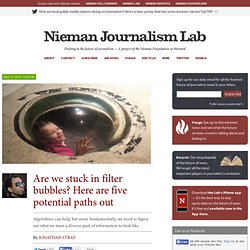

Independent Media for Independent Minds - BlackListedNews.com. Freethought Blogs. Unfiltered News. "Hello Mr. Griffin, Thank you from the bottom of my heart for these news updates and for the huge service you have been doing for humanity. Your work has opened my eyes to so many agendas and continues to educate with every new post….
With sincere gratitude," – Oriana Spratt, Ashland, Oregon "The Unfiltered News is one of my VERY favorite weekly reads I look forward to receiving. Endless thanks for sharing news and interests most people are not aware of or have little time to follow up and research. " – Jeanette R. "Thank you for your tireless efforts and easy-flowing news briefs. "Thanks soooo much for all of your hard work in bringing the truth to the people. "I am a person who has been, like most others, running around with my head in the sand until someone sent me a copy of one of your news letters, which opened my eyes.
"Thank you, thank you for your excellent news letter. "Kudos to Ed Griffin. "This is just a note to say thank you very much for Unfiltered News. "YES!!! Are we stuck in filter bubbles? Here are five potential paths out. The filter bubble is a name for an anxiety — the worry that our personalized interfaces to the Internet will end up telling us only what we want to hear, hiding everything unpleasant but important.

It’s a fabulous topic of debate, because it’s both significant and marvelously ill-defined. But to get beyond arguing, we’re going to need to actually do something. I have five proposals. If you’re not familiar with the filter bubble argument, start with Eli Pariser’s TED talk. The basic idea is this: All of us now depend on algorithmic personalization and recommendation, such as Google’s personalized results and the Facebook news feed which decides for us whose updates we see. Or maybe not. People have been talking about the dangers of personalized algorithmic filters since the dawn of the web — here’s Jaron Lanier in 1995, and Cass Sunstein in 2002 — and we’re still talking about it. 1. When we look at how people interact on the web, what do we actually see? The Filter Bubble. Personalization algorithms already tell us what movies to watch, news stories to read and tunes to listen to. It was only a matter of time, then, that they’d tell us who to love.
Matching algorithms aren’t new to online dating services. EHarmony, Chemistry and OKCupid have long served up compatible mates based on dozens, if not hundreds, of questions singles answer on their sites. But a new dating app, StreetSpark, is venturing out internet-wide to pick up clues on who you’re likely to become enamored with. Love seekers on the site can plug into their Facebook, Foursquare and Twitter accounts to discover potential lovers with similar tweets, profiles and cafe haunts. It’s like “traditional” online personalization but in reverse. StreetSpark touts their service as giving “serendipity a helping hand.” It’s an odd usage of “serendipity,” though, which describes the phenomenon of making desirable discoveries by accident. But it’s more than a semantic quibble. Eli Pariser: Beware online "filter bubbles".
The Filter Bubble. Keep your opt-outs. Posted by Sean Harvey and Rajas Moonka, Product Managers Today we’re making available Keep My Opt-Outs, which enables you to opt out permanently from ad tracking cookies. It’s available as an extension for download in Chrome. Why have we developed this feature? Recently, the Federal Trade Commission and others have expressed interest in a “Do Not Track” mechanism that could offer users a simple way to opt out of personalized advertising. Advertising companies that are members of the Network Advertising Initiative (NAI) already let you opt out of tracking for the purposes of personalizing advertisements, and many online advertisers and trade associations have also joined a major self-regulatory effort to enforce a uniform privacy icon for ads, as well as opt-out guidelines. There are more than 50 companies that are members that offer opt outs via these programs, including the top 15 largest ad networks in the U.S.